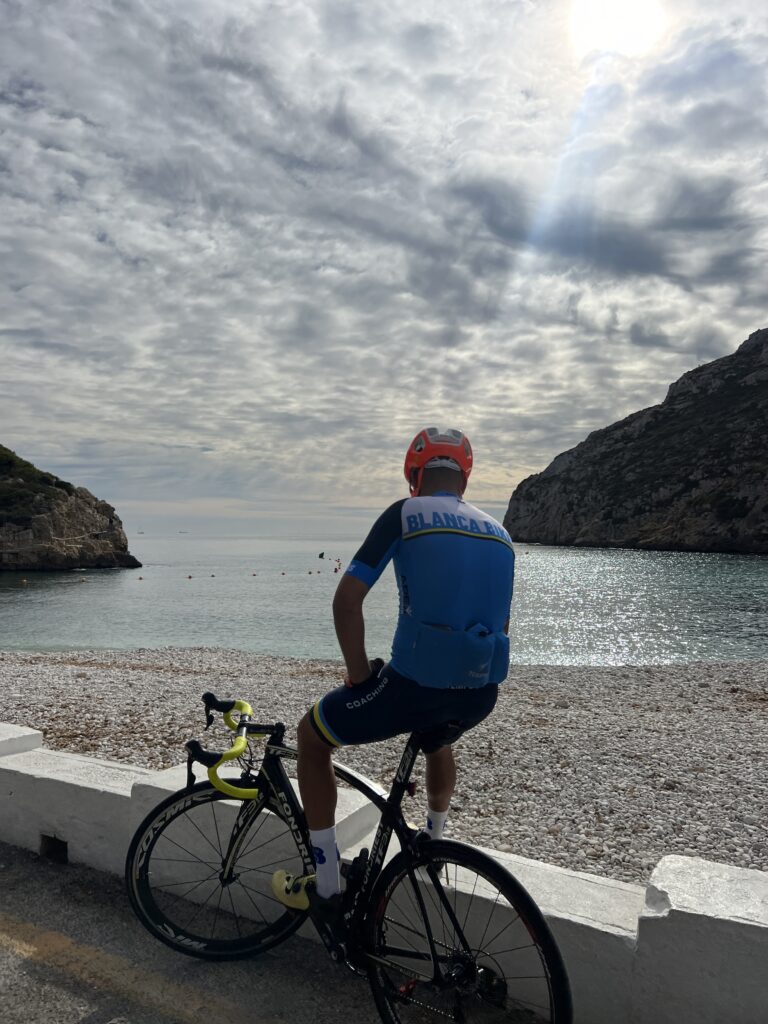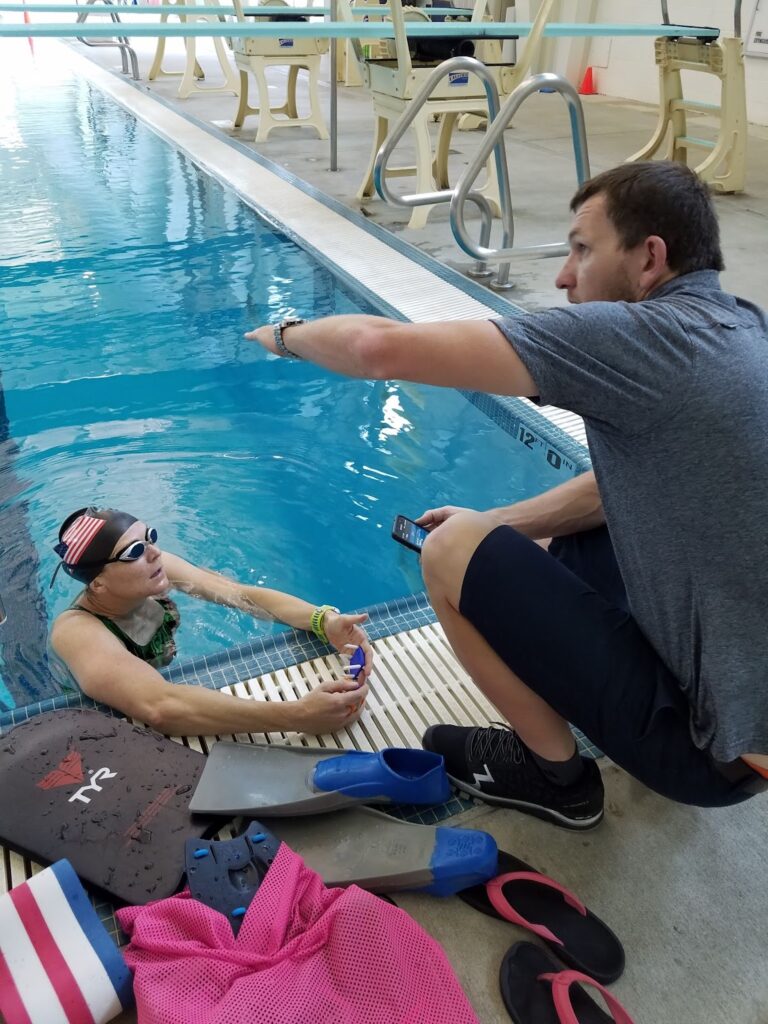
You have planned and picked the perfect goal event, you have trained and sacrificed time to prepare and now the day is here! You finish the race or event and maybe you didn’t hit the target you were looking for or maybe you had the victory of a lifetime, but in both cases, you can be left feeling disappointed, unfulfilled or even a bit depressed. Why? Where is the exhilaration of a job well done or mission accomplished? You’re not alone – this is a common response post event. There are a few suggestions to help you cross the finish line feeling happy and healthy, physically and mentally.
Let’s Get Real – Managing Expectations:
When setting expectations, being realistic is essential. You might set yourself up for disappointment or failure if you aren’t being realistic. Consider the following areas to help you set expectations that work and are achievable and manage your training both mentally and physically.
Determine expectations early on
When you determine your self-expectations early on you give yourself a much clearer path to pursue your goal. You also set the tone and pace at which you can accomplish your goal. Being honest is essential to setting realistic goals. Be honest with your level of ability, amount of time to train and the life demands and stressors that will impact your training time. Don’t expect to finish an Ironman in 9 hours with 8 hours of training a week for 6 weeks. You also need to really think about what you are expecting this event to provide you mentally, emotionally and physically. How do you expect to feel about the event if you do well, don’t do well or don’t finish? Will it change your perspective of the sport you love or yourself? Also consider how external parameters out of your control might affect how you accomplish your goal such as selection criteria, change of schedule or dates and even cancellation of events. Goal events should be enjoyed and mile markers on the road of life. There are many more miles, and your focus should be on the road ahead.
Learn to let go
When you don’t meet your expectations, it can lead to negative feelings. This can happen along the way, during your training or at the event. It is important to do your best to Let it Go and put it behind you. Letting go doesn’t mean that you should ignore your emotions or even be satisfied with the result. Instead, it means you should acknowledge your feelings and let go as you work to overcome what happened and refocus on the future. This also applies to set-backs in training. If you encounter injury or life situations that sideline your training, focus on what you can control and accomplish and not what you have missed out on or what you need to make up. Remember as we discussed in setting expectations, this event does not define you but rather is a small part of a whole that makes up your life. You can start over, pick a new event. Everyday is a new day! Reevaluate and Restart, as often as needed. You can also practice letting go of expectations for situations. One way you can do this is by reminding yourself that you can’t control external situations. You’re only in charge of your life, and things happen. Everything is not always going to be perfect and that is okay. Do your best to practice everything you can before your event to eliminate as many variables as possible. Remember, nothing new on race day – including nutrition, equipment or timelines. Not adhering to this can leave you not only disappointed but also injured. Everything on your event day should seem familiar and routine. When the unexpected happens, having realistic expectations and staying balanced is the key not only in training but in life!
Controlling the Controllables:
Managing the Pack Mentality
There is no doubt that the social aspect of endurance sports is a positive. The ability to encourage, challenge and support each other as we train is a valuable asset. We are social creatures and interacting and engaging with others gives us a sense of community. Group training can be of benefit and a good way to keep you accountable and get you out the door for training. You can train with others when it fits into your training schedule and the details of your workout. Just remember that the group plan is not your plan, and their goals are not your goals. You will only be as fast as the group. If you have specific goals, be sure you are training to your goals and not the group’s goals. Balance the need for social interaction and the specificity of your goals and training needs so you will get the most out of your training and the satisfaction you are working towards on event day. Another aspect of group training that is a challenge on event day is that the group will not be there on race day. It will be just you and the challenge of going through your event in a solitary mental and physical space, which can be a huge shift for some athletes. Train to your needs so you can be confident in your ability to execute on event day!
Give yourself time
While it’s good to set deadlines, setbacks happen. You might not accomplish your goals in your planned time frame, and it’s OK. Life happens and sickness, work schedules, family demands and even weather can cause pauses or delays in your training. Never try to “make up” workouts or cram in all you missed on the weekends. Training is a progression and doing too much can result in overreaching or injury which will delay your training further.
Choosing to push back deadlines or extending your timeframe can be beneficial, even if the vision takes longer to manifest. Getting frustrated might make you feel like you should go faster and work harder, but it’s not a realistic plan. Take a breath, focus on what you can control and do what you can, not more.
Realistic expectations involve flexibility. Rigid expectations aren’t always realistic because life is fluid and things will change. Consider giving yourself the chance to change the plan to accommodate your situation. Sure, training involves structure, but you also have to take into consideration real life and be sure you allow yourself to make adjustments along the way. Using a customized Training Plan which involves calls with a coach to make changes as you need or hiring a coach for your training in which you will get feedback, review and communication on a regular basis, goes a long way to managing and adjusting expectations along the way as well as giving you greater training progressions.
I have found that one of the biggest challenges for athletes is to embrace and enjoy their recovery phases or weeks and not to view it as “lost training time”. Most athletes find it a challenge to do less training time or intensity, eat as much or more than when in the training phase and truly understand what the benefits are of the recovery phase. The recovery phase is the most important phase of your training cycle. We build the training stress during your workouts and then the body adapts to that stress during your recovery phase. Most athletes get restless and twitchy around day 3 and say, “they feel great” and need to move. The body takes 3 days to completely begin the adaptation process and can take up to 7 days to complete. To cut short your recovery means you are shutting down the adaptation process and short-cutting all the work you have put in over the past training phase and not reaping all the benefits. You want to get the most out of your training and to do that you treat your recovery phase as the most important time of the cycle. Always be sure to fuel this adaptation, don’t eat less, eat well!!
Mastering the Mental Game:
Appreciate what you already have
Rather than thinking about what you want, you can consider the things you love or enjoy right now. Focus on the things in your life that bring you happiness outside of this training and your goal event. Make sure your life, happiness or total satisfaction do not depend on the result of your goal event or being defined by the result of the event.
Putting too much focus on your goal event can make you forget the good things in your life, disrupting your well-being. Training will take time and sacrifice, not only from the athlete but also their loved ones. Training should not be an all-consuming part of your life. You will need to eat well and set aside training time, but you need to keep in touch with the people or things in your life that are your anchor points and keep you grounded and happy.
When you let imbalance creep in, it can leave little time for hobbies, your friends, loved ones, and small joys in life. Without realizing it you can create gaps in your relationships and mental health that when the event is over will become very clear. You want to be sure to nurture these relationships as you train so they provide support and structure post goal event. Staying balanced is key to success and happiness. Balance will help you be available not only to yourself and your training but those who are important to you. Balance will help appreciate not only who and what you have but how far you have already come.
Practice positive self-talk
When setting expectations, you might consider how you talk to yourself internally. If your thoughts involve negative or reinforcements, you are creating a negative environment in which your body will need to operate. If you experience negative self-talk, try shifting your mindset and rephrasing the detrimental thought process. Replace each negative thought with 2 positive thoughts or phrases.
Endurance events are just as much mental as physical. If you have doubts about your training and the ability to execute, it will transfer to your performance. The body always follows the mind! Another thing to remember is that a happy and relaxed athlete is a fast athlete. Remember the “why” of what you are doing. Your goal event should represent a positive in your life and what you want to achieve. I often find that an athlete will want to accomplish a goal to “keep up with others” or because they feel it is expected of them in their social groups. While it is always great to train and race with friends or like-minded social groups, you should never take on a task just to please or satisfy others. Doing so will leave you unfulfilled and dissatisfied.
Control your Environment
Preparing for your event does not mean you live in a bubble. To remain balanced, you must continue aspects of everyday life. You may need to adjust your training and eating habits to get the most out of your training and this is optimal. There are a few ways to help you control your environment to get the results you are looking for.
Work, family or environmental demands are a part of life. Always greet them with positiveness and know that they are important and a part of your support system. When a situation that takes you away from training arises, remember that it is temporary and can be dealt with given time. Stay positive and relaxed. Limit stress to keep those cortisol levels down. Remembering to Let Go and move on will decrease stress.
When thinking of your goal event, always give yourself enough time to travel and recon courses, get over jet lag and check equipment before the event. Try your best not to be a tourist and on your feet before the event, stay out of the sun or conditions as much as possible and keep your meal schedule as close as you can to what you will need for the event or race day. If you can, try to keep bedtime, wake up and even training or recon to the same time as the goal event. So many athletes get to their event venue and forget all the little things in training that got them there. Focus on the small things that make a big difference on event day!
Your goal event will usually be outside of your home environment, this means that you are out of your normal schedules, demands and life stressors. You will be in most cases surrounded by those who love your sport as much as you do and live, eat and train very similarly. You can easily be swept up in this immersive community environment and living in the endurance utopia that is event week. After your event is over and you return to your normal routine, demands and stressors it is easy to feel the “Post Race Blues”. Demands of daily life return and you are pulled in several directions. This is where balance comes into play. Remember what you love about your sport and the experience you had but also what is important and you love in your daily life to you. Remember the long term and what is important. Your event was a space in time and to be enjoyed for what it was, but it is not the sum of your life.
Build confidence
Having confidence can help you overcome challenges positively in training or on event day. You will have confidence in the training you have completed because you set realistic expectations. Having those realistic expectations helped you develop realistic training targets, which in turn will give you realistic expectations about your goal event outcome. Having completed your training, even if you have had a few setbacks, should give you confidence to execute on the day of your goal event. Practicing balance and your responses to setbacks, and changes during the training phase should also give you confidence that you can handle anything unexpected that arises and overcome them to conquer your goal event.
Key takeaways:
- Set realistic expectations of your ability and training time
- Evaluate what you expect the event to provide you in terms of satisfaction and fulfillment
- Adapt to changes and life stressors that take you away from training
- Control what you can including your environment, putting timelines and nutrition into practice and any life stressors that come up
- Balance is the key to maintaining important anchor points in your life that you will need post event. Maintain balance with loved ones, things that are important in your life and reactions when things don’t go to plan.
- Remember what you have, how far you have come and what is important to you.
- Have confidence in your training and what has gotten you to your event.
- Go ahead – circle that date, train for your goal event and know that with realistic expectations, balance and adaptability you can not only accomplish your goal event but leave happy and healthy with treasured memories of a lifetime!
Author Simon Bennett is road & track cycling as well as multisport coach based in Greeneville, SC. Simon has been coaching full time since 2010 with a focus on endurance sports at every level. Simon has coached athletes from beginner to Olympic and World Champions winning 44 World Championships and over 78 National Championships on 4 Continents. Athletes he has worked with have won 7 Gold and 2 Silver medals in the Rio, Tokyo and Paris Olympic Games on the road and track. The athletes that Simon coaches compete in all types of events including Marathons, Triathlons from Sprint to Ironman distances, XTERRA triathlon, Duathlons, Swimming, Cycling- Road, Track, MTB and Paracycling.


